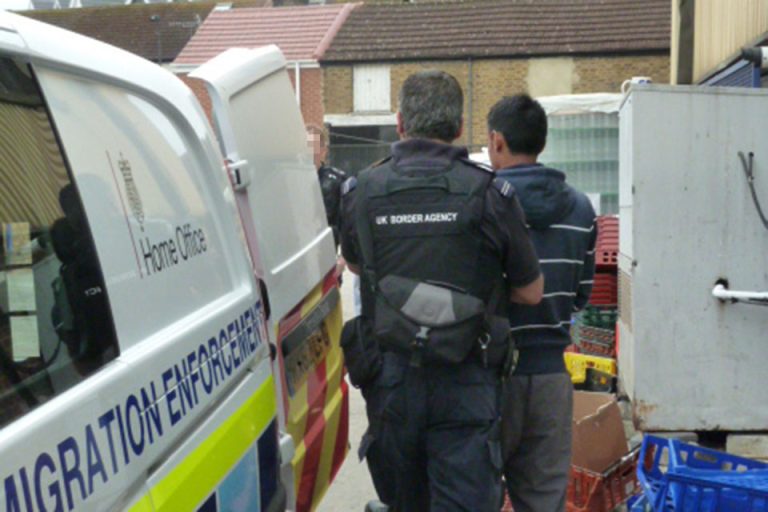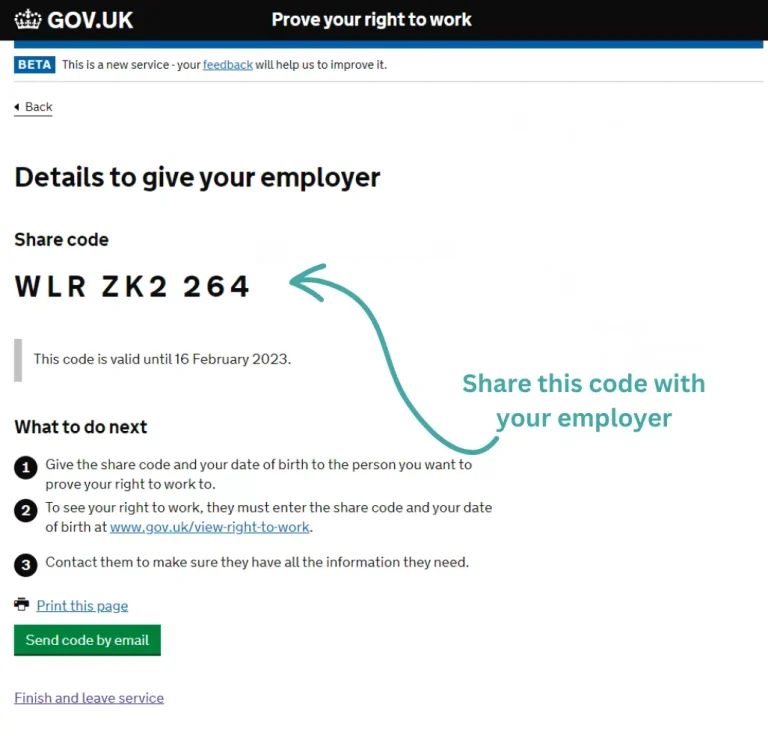Construction Industry, Operation Magnify and Civil Penalty
Back in 2015, the government rolled out Operation Magnify with a sharp eye on sniffing out folks suspected of hiring undocumented workers. The construction business was one of the hot spots they zoomed in on. Part of the drill was to get in touch with construction companies, sort of a friendly nudge, asking them to spill the beans about who was hammering nails for them, past and present.
Fast forward to last week, a construction outfit in London, who’d played ball with the immigration bigwigs during a snap audit, found themselves with a clean bill of health. In October, the head honcho got a pat on the back for having his ducks in a row, even though they found a trio of workers with passports that were about as real as a three-pound note. But they were told, these fakes were top-notch — so good, they didn’t blame them for not catching the bluff.
But here’s the kicker: out of nowhere, they got slapped with a hefty £30,000 fine. Talk about a bolt from the blue!
Now, the company’s gearing up for a fight, ready to challenge the fine, but let’s face it, that road’s long, windy, and chock-full of paperwork and penny-pinching.
This piece we’re diving into today casts the spotlight on the sticky situation for builders in the UK. With the immigration officials’ gaze fixed tight on them, how risky is it for the brick-and-mortar boys, and what can they do to dodge a curveball from Operation Magnify?
Construction’s Migrant Workforce
Operation Magnify is a chunk of the Immigration Bill making its way through the corridors of power, and it’s at the heart of the government’s master plan to turn the UK into no man’s land for undocumented migrants. The immigration chief, James Brokenshire, spilled the beans in Building magazine about why the construction gang is in the crosshairs: He reckons construction is an easy mark for illegal work because it’s always been hungry for more hands, it leans a lot on workers who don’t stick around, and it’s a piece of cake for fake IDs to open doors to jobs.
It’s no secret that migrants are the backbone of the building biz, which is gasping for skills and is poised to shoot up as the economy shakes off the dust of the downturn. The Construction Industry Training Board is all about plugging these skill leaks, and they’re saying that with the UK construction scene gearing up to soar between 2015 and 2019, they need nearly 224,000 new faces on the site.
Folks running construction outfits are shaking their heads, sure that local labor just won’t cut it to meet this spike. Migrant workers aren’t just ready to pack up and move to where the work’s at, but they’re also packing a punch with skills that are sometimes a no-show on the home front. Take it from a top dog at a big-time British engineering firm: He’s betting the farm that the shortage of savvy in mechanics, electrics, and plumbing will be plugged by talent jetting in from abroad — giving a thumbs-up to the expertise of engineers from places like Russia and Poland, who he says might even give the locals a run for their money.
Operation Magnify and Civil Penalty Increased Risk
Migrants are the bricks in the construction industry’s foundation, crucial not just for building but also for the broader UK economy. The industry’s got to keep hiring them, no two ways about it. But this tightrope walk means even the straight-arrow construction companies might accidentally hire workers without papers. And with the government’s eagle eyes peeled for any slip-ups, this is the worst time for such a mishap.
Navigating the maze of right-to-work checks is a real headache for builders, especially when you’ve got a mix of subcontractors and agency workers, not to mention the quick gigs paid with a wad of cash under the table.
Immigration rules say the big cheese, the ‘main sponsor’ registered with the Home Office, has got to vet these workers. But often, the big players like the Main Contractors or the project’s big boss turn a blind eye to the folks swinging hammers who aren’t on their payroll. This oversight is part and parcel of a business that’s always watching the bottom line and racing against the clock.
But here’s the rub: playing fast and loose with the rules could land you in hot water. The government’s crackdown is no joke, and they’re picking up speed. If you’re caught with undocumented workers, it could cost you a whopping £20,000 per worker. And if you knew about it? That’s a ticket to a courtroom and possibly up to two years behind bars.
Then there’s the damage control you’ll have to do if your site gets the spotlight for all the wrong reasons. The Home Office isn’t shy about broadcasting raids, and they can shut you down faster than you can say “investigation.”
And don’t think you can hide—UKVI (UK Visas and Immigration) loves their surprise visits, popping up to check papers and grill workers on the spot.
Don’t bank on red tape to save you, either. Immigration officers can snag a warrant to rummage through your site with ease, and data protection laws won’t stop you from having to hand over your records. UKVI’s got the muscle to demand all the info they need. So, it’s clear as day: the construction industry needs to smarten up, and fast, to stay on the right side of the law.
How to Prepare
The art of Right to Work checks is no walk in the park. With a maze of visa types and the nifty tricks of fake IDs, it’s no small feat to spot a phony passport. Plus, a worker’s visa might run out before you know it, making it super important for firms to stay sharp and keep checking that their crew can legally clock in. And the plot thickens: companies have got to hang onto their international workers’ paperwork for a full two years after they’ve waved goodbye. This isn’t just busywork; it’s the law.
So what’s a business to do? Keeping neat records and a tight ship when it comes to tracking who’s who in the workforce is key. It’s a big deal, and your HR team’s gotta have it down to a science. But hey, if you’re breaking a sweat over whether your paperwork’s up to scratch, don’t fret. Reach out, and we’ll give your system a once-over with a mock audit, just to make sure you’re hitting all the marks.
What if I Fail to Spot a Forgery?
The construction world’s no stranger to the shadowy side of paperwork, where fake passports and visas are, sadly, part of the daily grind. These knock-offs are a dime a dozen, and it’s way too easy to get your hands on one. This spells trouble for construction companies that are crossing their T’s and dotting their I’s, only to find they’ve accidentally hired workers without the right papers.
But here’s the silver lining: the law gets it. HR folks aren’t expected to moonlight as immigration gurus. They won’t throw the book at you for not catching a forgery unless it’s as plain as day. There are a handful of ‘get out of jail free’ cards, or statutory excuses, that can shield you from fines if you unwittingly hire an undocumented worker.
What’s the bottom line? Construction companies have got to do their homework, checking and double-checking that their workers are legit. And they need to show they’re not just going through the motions—they’ve got to mean business about these checks. If a visa’s about to expire, they need to be on the ball, working to get it renewed. When it comes to keeping records, it’s not just helpful; it’s the law. Good record-keeping isn’t just good practice; it’s a lifesaver.
Conclusion
Having the right papers isn’t just about ticking off boxes. It’s a matter of ethics. Workers without the proper docs might be under the thumb of gangs, caught in a web of exploitation, or worse—modern slavery. They’re out there breaking their backs while someone else pulls the strings, holding back wages, clipping their wings, and herding them into living conditions that no one should have to endure.
Chris Blythe, the big boss of the Chartered Institute of Building in the UK, laid it out in black and white in their 2015 report on Modern Slavery. He’s got word from the Home Office that too many people with clout in construction are looking the other way when dodgy papers come across their desks, even on the big-ticket jobs. When they ignore the fakes, they’re not just turning their backs on human suffering; they’re shaking hands with organized crime.
Beyond doing the right thing, think about the name you want to make for yourself and your business. Playing fast and loose with the rules could drag your reputation through the mud, and not just yours but the whole industry’s.
That’s why it’s absolutely critical for construction companies to make sure everyone on their team is on board with the law. This isn’t a one-and-done deal; you need a solid system to check the papers when workers walk in and keep an eagle eye on them as long as they’re on your clock. If you’ve got your house in order now, or if you take the steps to beef up what you’ve got, you’ll be ready to stand tall under Operation Magnify’s spotlight.






